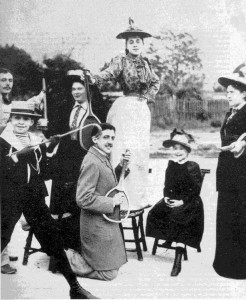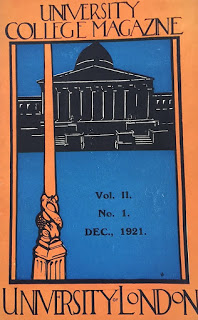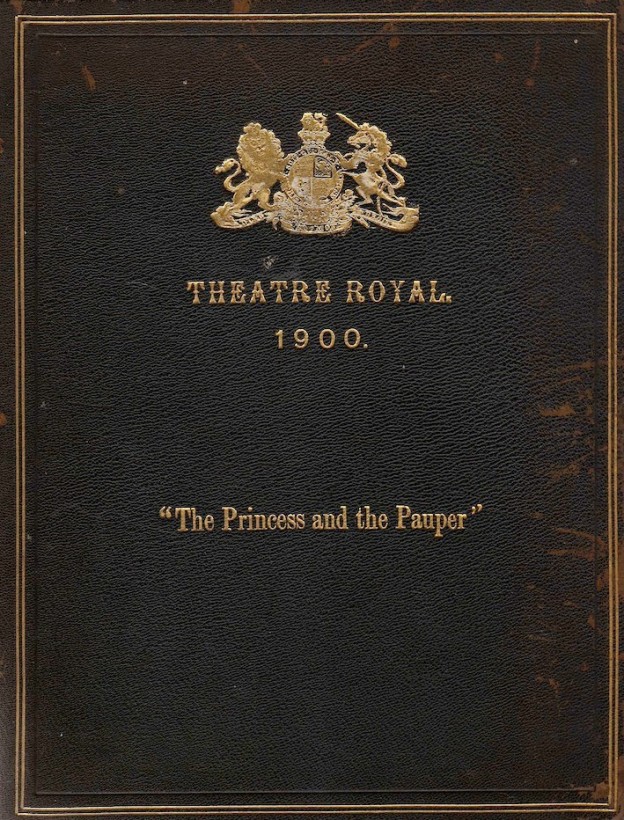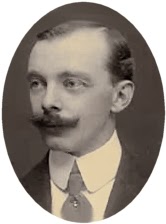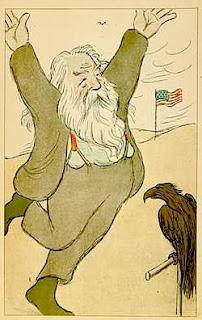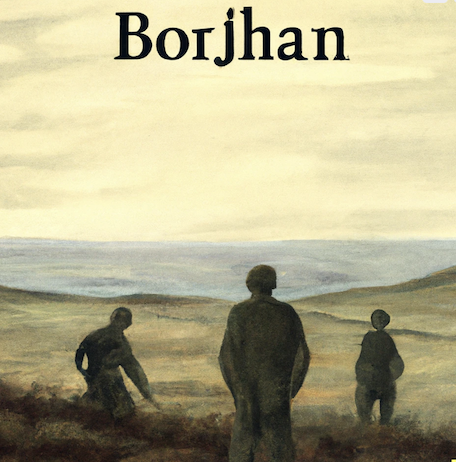
I asked Chat GPT to come up with a John Buchan parody. The brief was to write a piece with the context of rain outside, a man and wife inside and an unexpected visit by a friend. This had been the brief for a parody found in the annual school magazine of Clovelly-Kepplestone (1930) a private boarding school for girls in Eastbourne, Sussex. It flourished from 1908 until 1934 and was familiarly known to staff and pupils as “Clo-Kepp”. There is a very comprehensive piece on it at Wikipedia.
The Clo-Kepp John Buchan parody, probably by a school girl, is an amusing and well tuned effort:
“The night was wild and rainy and reminded me of the time when old Hatiron and I were engaged in that business of the Forty-second Psalm. My wife, who was busily employed in the stitching and repairing of one of my shirts, torn during the day’s shooting at Clan Haggis, remarked upon the persistently bad weather we had been experiencing of late, and wondered, the streams being then in spate, whether I should not take a week off to try the mettle of the fish in the Ben Slioch burns.
I opened The Times, and, glancing casually through its pages, noted with surprise that Flaxman had resigned his post in the Ministry. He was always pretty keen on politics, though strangely recondite in his views on Empire Policy, which he declared was sheer jingoism and inflated proletarianism. However, it seemed strange that he should leave the Ministry at a time when Burton was intent on seeing that England got what she wanted.
” Well, what’s the news ? ” inquired my wife.
” Oh, very little,” I replied, ” the usual things ; I see Flaxman has retired. I can’t help thinking there must be something to it.”
Just then the bell rang, and after a moment Breeves came in to ask if we were at home to Mr. Thoughtnot.
” Why, Jimmy,” I cried, ” this is a marvellous surprise.” The last time I had heard of him he had been wandering about Samarkand disguised as a Shiari ; and had you spoken of him in a certain hovel where the mountains dip down beside the valley, which runs towards Tashkent, you would have heard strange things of him. For Jimmy was a Lawrence in those parts, and there is not a wandering pedlar on the Kirgiz Steppe who will not give a night’s lodging to him who mentions Raskashpol.
Continue reading
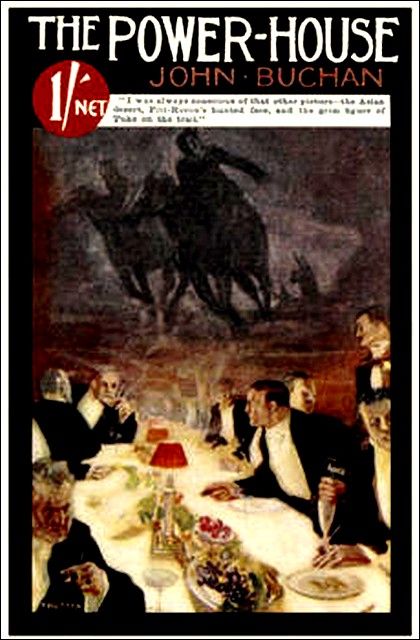
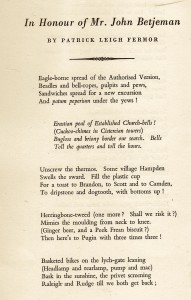
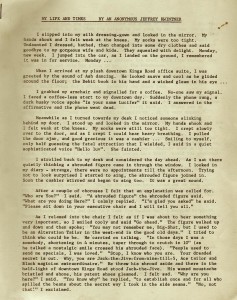
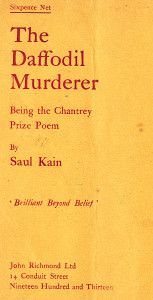 Found – a rather battered copy of Siegfried Sassoon’s early book The Daffodil Murderer (1913) published under the pseudonym ‘Saul Kain.’ In decent condition it has auction records like this from Bloomsbury Book Auctions in April 2009:
Found – a rather battered copy of Siegfried Sassoon’s early book The Daffodil Murderer (1913) published under the pseudonym ‘Saul Kain.’ In decent condition it has auction records like this from Bloomsbury Book Auctions in April 2009: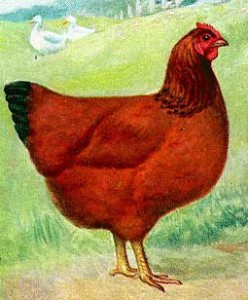
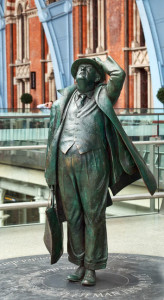 Found- in a copy of Nip in the Air (John Murray 1974) a book of poems by John Betjeman this affectionate parody by the esteemed travel writer Patrick (‘Paddy’) Leigh Fermor. It is probably from a magazine (pp 379-380), possibly The London Magazine but is not archived anywhere online. It is probably from the 1970s. It deserves a place in a completist Betjeman collection and in any future collection of
Found- in a copy of Nip in the Air (John Murray 1974) a book of poems by John Betjeman this affectionate parody by the esteemed travel writer Patrick (‘Paddy’) Leigh Fermor. It is probably from a magazine (pp 379-380), possibly The London Magazine but is not archived anywhere online. It is probably from the 1970s. It deserves a place in a completist Betjeman collection and in any future collection of 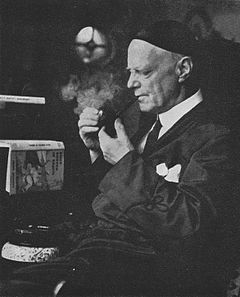
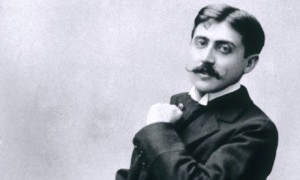 This the last part of a two part posting. See
This the last part of a two part posting. See 